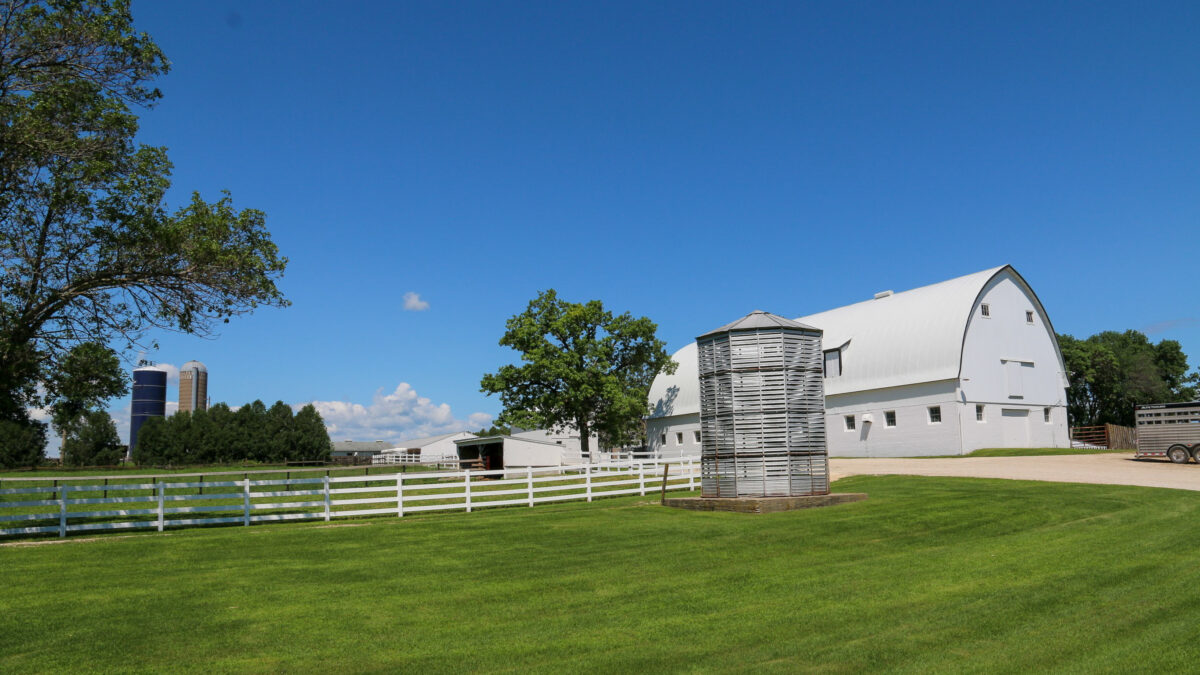Farming Is Risky Business
Guest Author
Special Contributor to FB.org

photo credit: Alabama Farmers Federation, Used with Permission
Guest Author
Special Contributor to FB.org
Download a 60-second audio version of this column at Stewart Focus.
Noma, one of the world 's best restaurants known for its new Nordic cuisine, will close at the end of next year and reopen on a different site in Copenhagen as an urban farm. Chef René Redzepi says he wants to grow all the produce on his menu. He 's nervous about the decision, and who wouldn 't be? Running a first-class restaurant is risky enough; running a farm is even riskier.
One would think that with all the advancements in agriculture over the last half century surely the risky business of farming has become more predictable and stable. Farming is less intuitive and more data-driven, but that hasn 't eliminated the uncertainty of it.
Risk is the probability of an unwanted event occurring, and every year farmers and ranchers brace themselves for these unwanted events. In 2015, the spring outbreak of avian influenza and the western drought were at top of the list.
Nationwide more than 50 million birds were lost, affecting the production of eggs, chickens and turkeys at a cost of over a billion dollars. Consumers noticed a price ripple at the supermarket, but hard-hit producers may need a couple of years to recover.
The drought will result in losses of nearly $2 billion to California agriculture this year alone. Nearly a half million acres of cropland were left fallow in the Central Valley. Mountain snowpack was historically low, forcing cutbacks in irrigation.
If you think farmers who escaped these unusually bad events are in the clear you would be wrong. Across agriculture, net farm income is expected to drop by more than a third in 2015. The final numbers won 't be known for some time, but it will likely be the worst drop since 1983.
The ups and downs of farming are nothing new; they were recorded as far back as the Bible. Joseph perhaps was the first person to practice risk management when he interpreted Pharaoh 's dream and told him to stockpile grain ahead of seven years of famine. In biblical times, the risks to agriculture were primarily drought, pestilence and war.
Today, farmers and ranchers are faced with a host of additional risks that can result in financial loss. For example, there are political risks that threaten the renewable fuel market as big oil companies continue to lobby against ethanol. There are regulatory risks as the federal government attempts to extend jurisdiction over just about everything a farmer can do on his land. The global marketplace is risky as well with American farmers susceptible to a fall-off in world demand, trade restrictions and currency fluctuations.
Most producers use a combination of financial strategies and tools to manage risk including forward contracts, hedges, crop yield insurance and crop revenue insurance. Off-farm employment by members of the household also provides a more certain income stream. Yet, nothing can offset all the risks of operating a farm or ranch.
As the public becomes more knowledgeable about how their food is grown, thanks to educators and the agriculture industry, it is important not to leave out the very basic fact that farming is still a financially risky business.
Stewart Truelsen, a food and agriculture freelance writer, is a regular contributor to the Focus on Agriculture series.